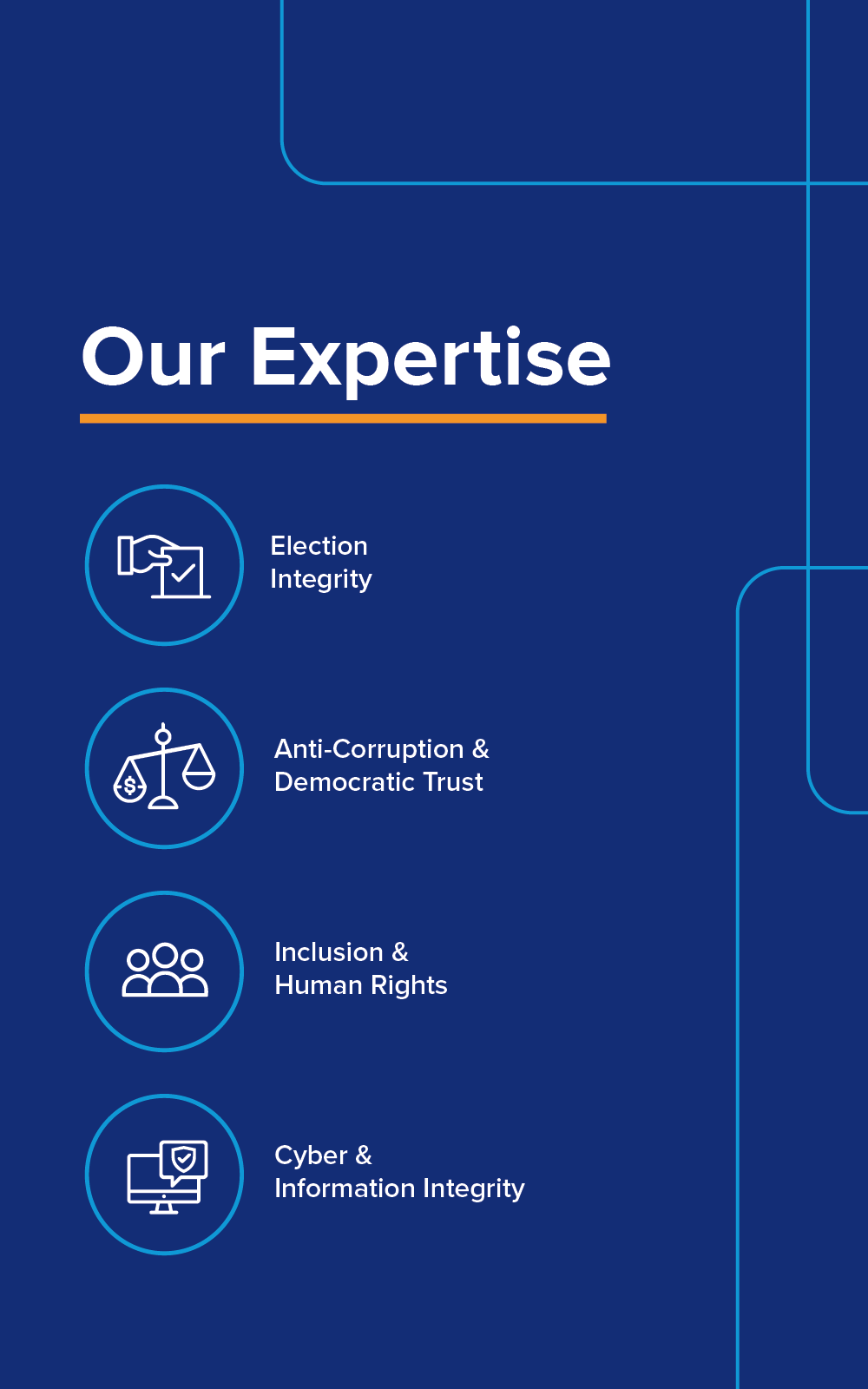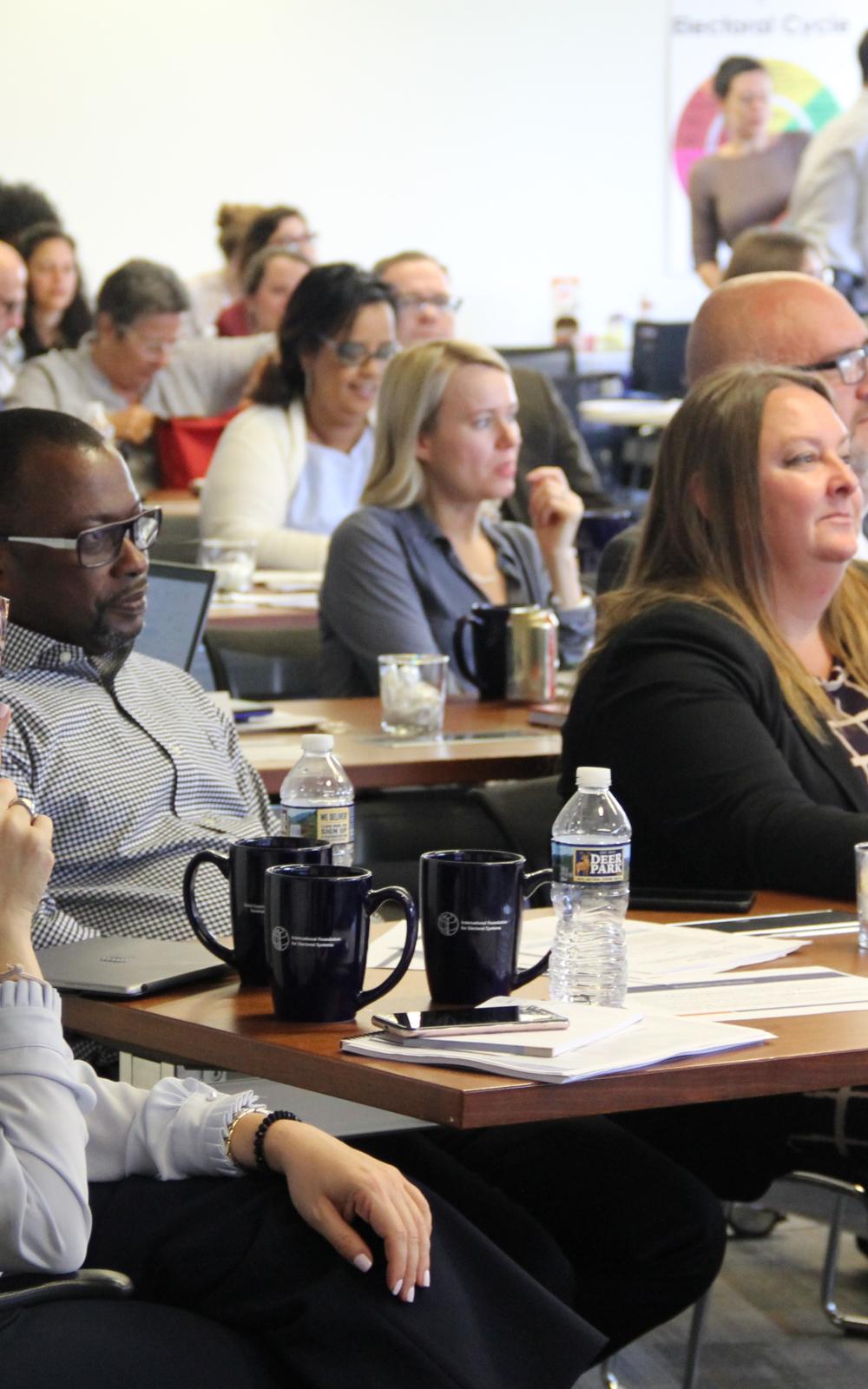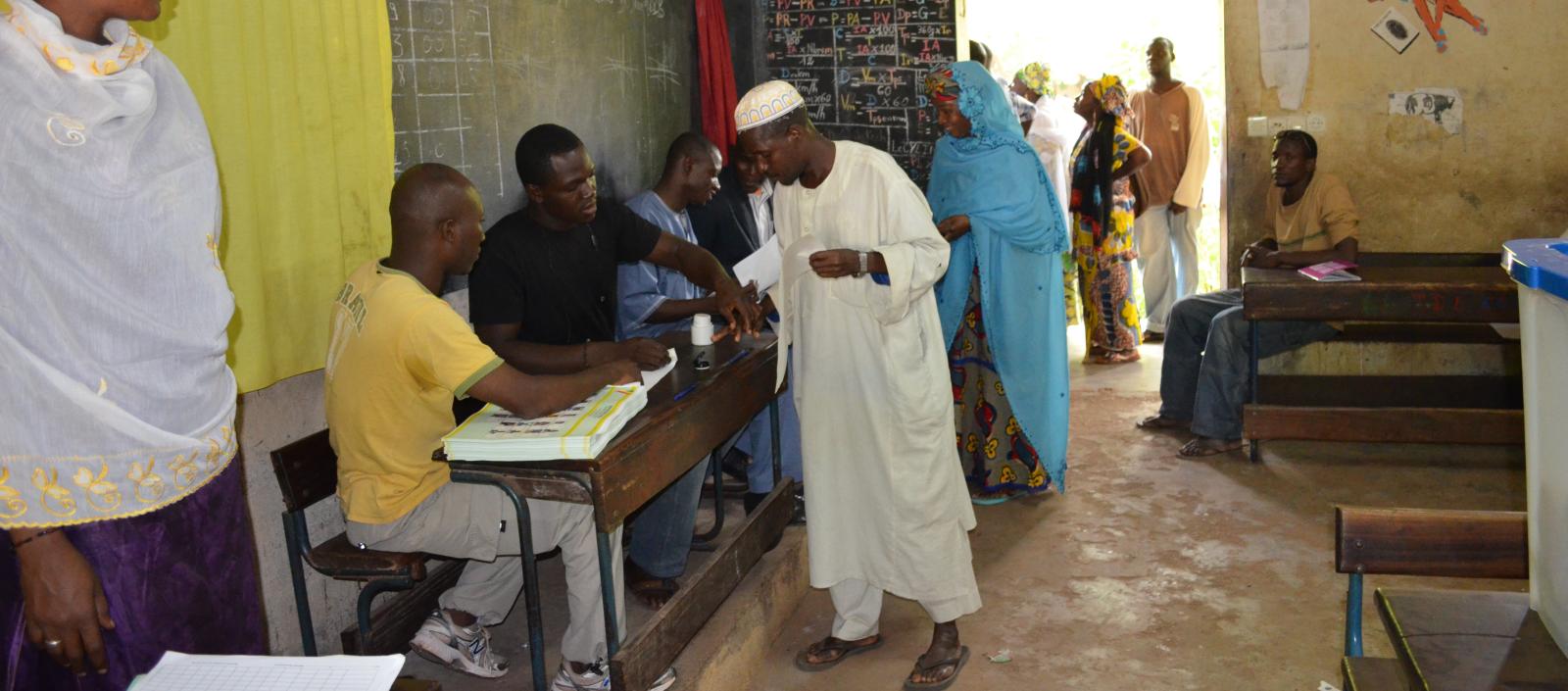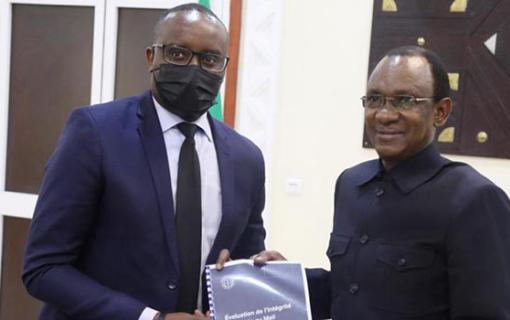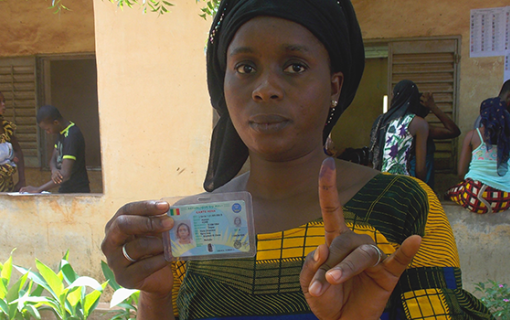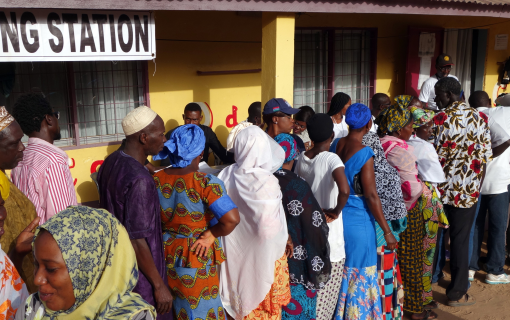Mali
Voter getting inked in the 2013 presidential election in Mali
Following the 1991 transition to democracy in Mali after the overthrow of long-time dictator Moussa Traoré, the country was seen to be an example of a stable and resilient democracy in the Sahel. This perception was dramatically changed following a military coup in 2012 and the outbreak of conflict in the country by marginalized groups from the country’s north and the growth of violent extremist organizations. Despite the signing of the Algeris Accords in 2015, which ended the conflict between the Malian government and Tuareg insurgents in the north of the country, security and governance challenges persisted within the country. This culminated in the overthrow of Malian President Ibrahim Boubacar Keïta in the summer of 2020 and further disruptions to an accord outlining the return to a civilian government the following year. In this context, IFES partners with civil society organizations and the Malian government to support a return to democratic governance and the establishment of accountable electoral institutions in Mali.
Since the introduction of multiparty democracy in 1992, Mali has experienced a cycle of subpar elections that have lent pretext to military coups against governments perceived as lacking electoral legitimacy. Most recently, President Ibrahim Boubacar Keita officially resigned Aug. 18, 2020, pressured by the military, initiating an 18-month transition. A new military move in May 2021 removed transitional President Bah Ndaw (who had replaced Keita) and installed Colonel Assimi Goïta as the new transitional president. Goïta has vowed to hold elections in 2022 as planned.
Working in Mali since 1991, IFES has supported the strengthening of electoral processes by providing direct technical assistance to electoral management bodies (EMBs) and supporting civic and voter education under two projects funded by the United States Agency for International Development (USAID): Mali 2012 General Elections Support Program (2011-13) and Promoting Peace and Reconciliation through Inclusive Political Party Dialogue and Strengthened Government Institutions (2013-16). IFES-supported civic and voter education campaigns in 2013 resulted in the highest participation rate for legislative polls since the advent of the multi-party democracy in Mali in 1992. IFES is currently conducting a USAID-funded Electoral Integrity Assessment (EIA) to assist electoral stakeholders in Mali to map out critical aspects to the electoral reform process
In 2021, IFES conducted an EIA from January to March, collecting information and interviewing Malian stakeholders. The EIA provides comprehensive, forward-looking vulnerability mapping across the transitional electoral cycle. Through this assessment, IFES categorized 14 key issues under malpractice, systemic manipulation or fraud vulnerabilities for Mali’s upcoming transitional electoral cycle. These vulnerabilities include, among others: a fragmented and uncoordinated electoral management system; a nonbinding electoral calendar; under-registered voters; timing of constitutional amendments; incomplete boundary delimitation; a non-inclusive reform process; a lack of operational planning; and a high possibility of electoral fraud.
IFES will assist Malian stakeholders to address many of these challenges through the USAID-funded Mali Electoral Transformation (MET) program. MET seeks to improve the capacity, integrity and transparency of Mali’s electoral system; enhance inclusion in and responsiveness of electoral processes for women, youth, internally displaced persons, migrant workers, returning refugees and traditionally marginalized populations; and strengthen electoral results and dispute resolution processes.
Our Global Expertise
